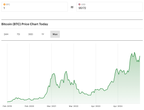FOMC Decisions: How Federal Reserve Policies Impact Bitcoin and Crypto Markets in 2025
In 2025, all eyes are once again on the FOMC (Federal Open Market Committee) as it navigates a complicated economic landscape. The interplay between interest rate policy, economic uncertainty, and the volatile world of cryptocurrencies has become a focal point for investors worldwide. This article explores the latest FOMC developments and their profound impact on Bitcoin and the broader crypto market.

What Is the FOMC and Why Does It Matter?
The FOMC is responsible for setting monetary policy in the United States, primarily by adjusting interest rates and controlling liquidity. Every FOMC meeting is closely watched by both traditional and crypto market participants. The committee's signals can trigger significant movement in risk assets—especially more volatile ones, like Bitcoin.
FOMC Rate Decisions: The Trigger for Crypto Volatility
Leading up to the most recent FOMC meeting, cryptocurrency markets entered a phase of heightened uncertainty. Bitcoin slipped below $95,000 as traders braced for the Federal Reserve's interest rate announcement. According to a recent report, the central bank is widely expected to hold rates steady, despite mounting political and economic pressures (source).
This uncertainty is not just limited to Bitcoin. Coins like Ethereum and Dogecoin also experienced sharp declines, reflecting market-wide jitters in the face of the FOMC's upcoming decision. As a crypto strategist explained, Bitcoin now behaves like a 'high-beta' macro asset, reacting swiftly to external policy signals.
How FOMC Actions Influence Crypto Assets
The connection between FOMC policy and crypto market movement has grown increasingly strong in recent years. In times of policy tightening, risk assets tend to struggle. When the FOMC eases monetary conditions, risk-on sentiment can return, often leading to sharp rallies in cryptocurrencies.
In a detailed analysis from Forbes, experts warn that the Federal Reserve is caught between rising inflation and a weakening economy. As GDP contracts and the PCE price index hits new highs, stagflation fears are mounting (full analysis). For Bitcoin, these complex dynamics can mean both downside risk and the potential for outsized gains if the FOMC pivots toward looser policy.
Navigating the Uncertainty: What Should Crypto Investors Watch?
With policy uncertainty at the forefront, crypto investors are watching several key signals:
- FOMC statements and forward guidance
- Changes in interest rates or hints at future cuts
- The impact of geopolitical events, such as trade tariffs and inflation
Each of these factors can spark short-term volatility but also point to long-term opportunities. For example, renewed dovishness from the Fed could reignite a rally in Bitcoin and other risk assets.
For those seeking real-time market insights and guidance on crypto trading in this environment, check out the coverage that tracks how assets like Bitcoin, Ethereum, and DOGE react ahead of each major Federal Reserve decision (see Benzinga’s update).
Conclusion: The FOMC Remains Key for Crypto
In summary, the relationship between FOMC policy and the crypto markets is more critical in 2025 than ever before. As economic and political pressures continue to rise, the actions and comments from Federal Reserve leaders will likely remain the top catalyst for Bitcoin and digital assets. Smart investors will keep a close eye on FOMC statements for clues and plan accordingly to navigate the market’s volatility.
Stay tuned for more updates as the FOMC continues to shape the path for both traditional finance and the fast-evolving crypto sector.